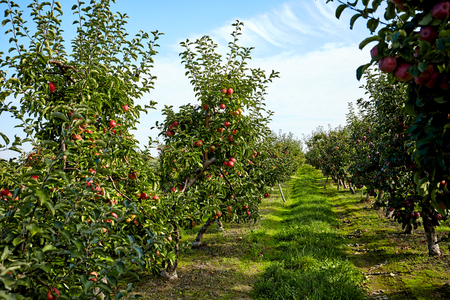How Agriculture Can Be Good for Honeybees
June 08, 2017
Bee Colony Collapse, Honey Bees
Given that many scientific reports have spoken to the negative effects agricultural pesticides can have on honeybees, it might be hard to imagine that agriculture can actually help bees and their overall health. In fact, researchers from the University of Tennessee’s Agriculture Institute seem to have made discoveries suggesting honeybee heath can improve within the company of agriculture. Their study, titled "Agricultural Landscape and Pesticide Effects on Honey Bee Biological Traits," was published recently in the Journal of Economic Entomology, and it evaluated how row-crop agricultural production, which includes traditional pesticide use, impacts honeybee health.
The Effects of Agriculture
The results of this study showed hive health positively correlated with agricultural production while colonies in non-agricultural areas struggled in finding satisfactory food resources, therefore producing fewer progeny. "We're not saying that pesticides are not a factor in honeybee health. There were a few events during the season where insecticide applications caused the death of some foraging bees," said Mohamed Alburaki, who is the study’s lead author as well as a post-doctoral fellow at the University of Tennessee’s Plant Pathology and Entomology Department. "However, our study suggests that the benefits of better nutrition sources and nectar yields found in agricultural areas outweigh the risks of exposure to agricultural pesticides."
The Study
For their study, Alburaki and his fellow researchers started experimental hives in various locations throughout western Tennessee, which ranged from intense agricultural to non-agricultural production. For one year, the colonies were observed for productivity and performance by calculating brood production, colony thermoregulation, and colony weight. Colony thermoregulation—the capability of maintaining a hive’s optimal temperature—is an especially important variable for brood development as well as the overall health of the resulting mature honeybees.
Per the study, the hives in areas containing moderate to high agricultural growth grew larger and faster than hives in areas with low or no agriculture. The research suggests the larger population sizes allowed superior colony thermoregulation within the hives too. Meanwhile, the bees in non-agricultural environments struggled in finding food. While fewer pesticide pollutants were found, the areas didn’t have workable forage. During observations, in fact, two hives within these non-agricultural ranges collapsed because of starvation.
Brood Production
Fluctuations and disruptions in the hives’ brood rearing also became notable in the non-agricultural environments. Surprisingly, brood production grew to its highest in locations with more evenly dispersed mixes of agriculture, urban activity, and forests. "One possible explanation for this finding could be the elevated urban activity in this location," Alburaki said. "Ornamental plantings around homes or businesses or backyard gardens are examples of urban activity that increase the diversity of pollen in an area. Greater pollen diversity has been credited with enhancing colony development."
Neonicotinoids
Alburaki’s team also examined each colony’s trapped pollen for pesticide residue. Low amounts of insecticides, fungicides, and herbicides were found but at quantities well below lethal doses for honeybees. The single neonicotinoid detected was imidacloprid but also not at lethal levels. It’s neonicotinoid agricultural pesticides that are especially considered by many to be a main factor in honeybee populations declining. However, Alburaki’s study indicated that greater contact with pesticides didn’t result in quantifiable effects on hive productivity. "It's becoming clearer that the influences of varroa mite and food availability are more important factors in honeybee health than agricultural pesticides," said Scott Stewart, a pest management specialist with UT Extension.


.jpg)



